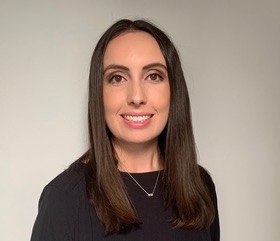Buying your first home is a major step in your life. It represents your ability to earn enough money to house you and your family and provide them with a stable living situation. At issue is the fact that you have to put in a lot of effort to get a mortgage for buying a home. Lenders want to make sure that you represent a reasonable amount of risk, and banking laws require a lot of proof that you’re capable of repaying the mortgage.
To meet the requirements, you have to be prepared to meet the challenges that come with buying real estate. Being prepared for the following aspects of getting a mortgage serves to make the process move more smoothly, and gets you to the closing with the least amount of friction.
Build Up Your Down Payment Fund
Traditionally, buyers put down 20% on a home, but this isn’t a hard and fast rule. It’s possible to buy a home with a smaller down payment, although there will be terms and conditions that burden the mortgage. You’re best served by building up a down payment fund for as long as you can prior to looking for a home.
Putting a larger down payment on a home benefits you in the long run as you can qualify more easily for a traditional loan. Banks want to get repaid, and they’ll put conditions, fees, and terms on a mortgage with a lower down payment. Oftentimes, these costs are added to the mortgage, which makes your monthly payment higher, and also makes the loan more costly over time. It’s better to start a mortgage with as few costs as possible in order to save money now and later.
Pay Down Your Debt
Ideally, your mortgage should take about a third of your income for repayment, with the remainder used for various types of bills and debt service. Lenders don’t necessarily disqualify you for having some debt, but they’re less likely to approve you if you have too much outstanding debt. In order to improve your ability to qualify, you need to focus on paying down your debt to reasonable levels.
It can be a bit of a struggle to save for your down payment while paying down your loans, but it’s possible with fiscal discipline. Watch your spending, find ways to save money on daily needs, and find extra income if possible. Taking these actions can feel daunting when you start, but it does get easier over time, and you’ll eventually retire your debt for good.
Determine How Much You Can Afford
Buying a home means you’re taking on a monthly payment that you’ll be making for the next 30 years. That’s why it’s important to buy a home you can comfortably afford, even in times of economic uncertainty. Resist the urge to get the most house that you can afford with your current income, and focus on buying a home with a reasonable monthly payment instead.
Knowing how much you can comfortably pay every month makes the difference between being able to pay your mortgage when times are tight. Set your sights on a payment that won’t cause stress, and don’t take on more than you should. This helps you keep your home when you’re in between jobs because you’re not struggling to pay the mortgage.
Get Pre-Qualified
Getting pre-qualified makes it easier for you to buy the home of your dreams. It shows the seller that the bank will fund you for the agreed-upon amount, and the closing process will proceed as expected. It also saves time and effort because the most important part of the lending process, including verifying financial details like tax documents, has been initiated prior to making an offer. The seller can enter into the contract knowing that they’ll be able to close quickly, get a satisfactory price for their home, and move on to the next part of their journey sooner.
It’s worth noting that a pre-qualification letter is only good for some time, typically 60 to 90 days. In order to get the benefit of being pre-qualified, you have to create a plan of action to achieve your goal of buying a home. Ideally, you’ll have identified multiple homes that are in your price range before getting pre-qualified. After you get approved, you can approach the sellers of the homes you identified, show them your pre-qualification, and make an offer.

Have an Idea of the Location and Type of Home You Want to Own
Buying a home means putting down roots in a neighborhood for a long time. You need to make sure that the house you buy is located in an area that meets your needs. Other considerations include school quality, distance from your job, and proximity to the amenities that are important to you. Once you’ve answered these questions, you need to consider the type of home that meets your living needs.
Homes come in a variety of designs, styles, and sizes that are intended to suit different lifestyles. Some people like a home with a basement that’s got space for a workshop, while others want a single-story home so they don’t have to deal with stairs. Taking the time to identify the ideal location and style of home saves you time, effort, and is more likely to deliver satisfaction.
Check the Climate Risk Level for Adverse Weather Events
This is something that homeowners have only begun to consider as part of buying a home, and was almost nonexistent in the past. Now, changes in weather patterns and the fact that homes are built in areas that are prone to weather-related disasters are adding to the need to check for climate risk. The major reason for doing a climate risk check comes down to homeowners insurance and the fact that flood insurance is only offered by the federal government.
Buying a home is the biggest purchase you’ll make in your lifetime. It’s important to understand the climate risks associated with the area you want to live in, and how that can affect your insurance premiums. Many regions of the U.S. are facing difficulty with getting homeowners’ insurance due to natural disasters that were once an afterthought. You can make a better decision about where to live when you understand the climate risk data before buying.
Being a Savvy Home Buyer Lets You Get the Home of Your Dreams
These insights help you prepare for the home-buying process, and make it easier to anticipate what you need at each stage of the process. Ultimately, it’s always best to talk with the professionals who handle the mortgage process before you find a home to buy. They can look over your specific issues, help you resolve them, and walk you through the process of getting you into your new home.
Megan Isola

Megan Isola holds a Bachelor of Science in Hospitality and a minor in Business Marketing from Cal State University Chico. She enjoys going to concerts, trying new restaurants, and hanging out with friends.
